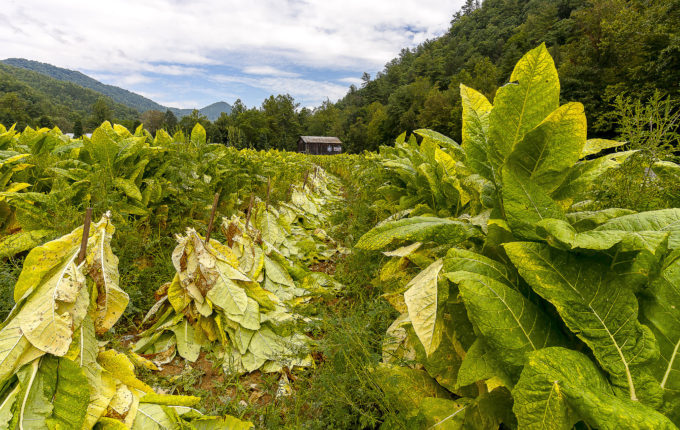A month ago, farmers scored an important victory when the North Carolina Supreme Court issued an opinion in the case of Kornegay Family Farms v. Cross Creek Seed Co. It hasn’t gotten much media attention, but Kornegay is a significant case for North Carolina’s farm families, so let’s take a moment to break it down — in both legal terms and layman’s terms.
| Legal Terms | Layman’s Terms |
| The case involves eight tobacco farmers from various parts of the state who bought a specific type of tobacco seed from Cross Creek for the 2014 crop year. When the farmers received the seed, they planted it, thinking it was the type of seed they had ordered. But as the plants came up stunted and deformed, the farmers realized they had a problem. The seed Cross Creek had shipped was mislabeled. The farmers’ crop was worthless. | Farmers bought some tobacco seeds from Cross Creek. Those farmers planted the tobacco seeds. The tobacco plants came up deformed. No one wants deformed tobacco. This is a problem. |
| The farmers asked Cross Creek to pay them for the value of the lost crop, but Cross Creek refused. The farmers then took Cross Creek to court, claiming the seed dealer was responsible for their crop loss because it failed to send the farmers the specific tobacco seeds they had ordered. Relying on North Carolina’s version of the Uniform Commercial Code (UCC), which governs the sale of goods, including agricultural products, Cross Creek said it was only liable for the price the farmers paid for the seed and nothing more. | The farmers asked Cross Creek to make it right and reimburse the value of the lost crops. Cross Creek said they only have to reimburse the cost of the seeds they sold. So the farmers said ‘We’ll see you in court.’ |
| The case was assigned to the North Carolina Business Court. Cross Creek asked the court to end the case before trial on the basis of their UCC argument. The Business Court rejected Cross Creek’s request. Explaining its ruling, the Business Court wrote that the case before it was similar to a 1960s case that involved mislabeled tomato seeds. In Gore v. George Ball, Inc., 279 N.C. 192 (1971), the North Carolina Supreme Court held Mr. Gore’s damages were not limited to the price he paid for his tomato seeds because it was the public policy of the State, as codified in the North Carolina Seed Law, to protect “farmer[s] from the disastrous consequences of planting seed of one kind, believing he is planting another.” 279 N.C. at 208. The Business Court cautiously decided to follow Gore, noting the General Assembly hadn’t changed the Seed Law’s underlying public policy in the 40 years since Gore was decided. But the Business Court also wrote that it was unsure about whether Gore was still good law because it was decided before the UCC took effect. Based on this uncertainty, the Business Court urged the parties to appeal the case to the North Carolina Supreme Court, which they did. The Supreme Court agreed to hear the case and issued a decision on August 18th. (North Carolina Farm Bureau and other commodity associations filed a friend of the court brief in support of the farmers.) | The Business Court says there is legal precedent that seems to indicate that the farmers are right, but the parties involved should get a second opinion. The case gets appealed to the NC Supreme Court. |
| In a win for North Carolina’s farmers, the Supreme Court held the UCC did not invalidate the public policy expressed in the Seed Law. Writing for the Court, Associate Justice Barbara Jackson observed that North Carolina’s version of the UCC “does not ‘impair or repeal any statute regulating sales to consumers, farmers or other specified classes of buyers.’” N.C.G.S. § 25-2-102. The Business Court was correct: Gore and the Seed Law’s public policy is still good law. | The NC Supreme Court takes a look at the case and decides that the Business Court has it right. The farmers can ask Cross Creek for more than just the cost of the seeds. |
The case now goes back to the Business Court for a trial to determine whether, in fact, the farmers received mislabeled tobacco seeds from Cross Creek. There’s still a long row to hoe in the case and it’s possible the farmers may not win at trial.
But over the long term, Kornegay is an important case because it holds that farmers who suffer crop losses when a seed dealer provides them with mislabeled seeds may recover the value of their crop, not merely what they paid for the seeds. That makes common sense. And it’s good news for North Carolina farm families.

